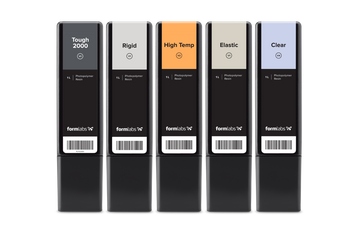As energy pipelines continue to crisscross the country, transporting the lifeblood of industries such as oil and natural gas, efficient and accurate methods of energy pipeline inspection have become critical. Over time, these pipelines are susceptible to corrosion, as well as mechanical damage, in the form of dents and gouges. Regulatory authorities require periodic inspections and assessments to facilitate necessary maintenance, repairs, or upgrades.
Traditionally, non-destructive testing (NDT) techniques, such as depth gauges and ultrasonic flaw detectors, have been employed for energy pipeline inspections. However, in recent years, high-precision 3D scanning technology has gradually become a common way of non-destructive testing of energy pipelines.
Challenges in Energy Pipeline Inspection
Damage to energy pipelines often involves irregularly shaped areas such as corrosion and fractures, making it difficult to assess the extent of damage through visual or manual measurements. Data on the depth of corrosion and post-corrosion thickness of pipelines are also very difficult to obtain. However, with theFreeScan UE handheld 3D scanner, operators can acquire comprehensive 3D data of the entire damaged surface in a non-contact manner.
Using FreeScan UE to scan section of corroded pipeline
Advantages of High-Precision 3D Inspection
● Efficiency: Traditional pipe inspection methods require a high level of skill and can take a long time. In contrast, an easy-to-use 3D scanner requires no special operating skills, and even staff with no previous scanning experience can get up to speed quickly. The FreeScan UE helps to quickly capture complete data of the entire pipe surface, ensuring that no critical details are missed during the inspection process.
3D data on corrosion of the pipeline
● Portability & Material Compatibility: Weighing only 750g, the FreeScan UE supports handheld scanning for a long time, or you can easily take it to the site where the pipeline is located for scanning. In addition, FreeScan UE has strong material adaptability and is compatible with different material surfaces (e.g. black, reflective materials).
● Accuracy: The high precision and stable repeatability of the FreeScan UE ensure reliable data. With an accuracy of up to 0.02mm and a volumetric accuracy of up to 0.02mm + 0.04mm/m, the FreeScan UE is well suited to meet the needs of pipeline inspection.
3D data on the fracture of the pipeline
For scanning small pits and other complex features, the FreeScan UE also offers a single line scan mode. This feature focuses the laser beam on a narrow line, providing high-resolution data on even small defects.
● Compatible with 3D Software: Data acquired with FreeScan UE can be imported into different 3D software for processing with a single click. In this case, Geomagic Control X was used to inspect the depth of corrosion pits, crack thickness and other key parameters of the pipeline as a base data set for subsequent assessment, maintenance and research.
3D data on wall thickness of the pipeline
Wall thickness measurements
Conclusion
Scanning technology represents a significant leap forward. The challenges associated with irregularly shaped damage and the difficulty of obtaining accurate data are being solved by 3D scanners. Its efficiency and accuracy solutions make it an ideal tool in the field of energy pipeline inspection. With the FreeScan UE, we are not only streamlining the inspection process but also ensuring that crucial details are never overlooked, ultimately contributing to the safety and sustainability of our critical energy infrastructure.
Are you also looking for ways to inspect energy pipes efficiently? Click here to contact us and find out how our metrology 3D scanners can help you!







